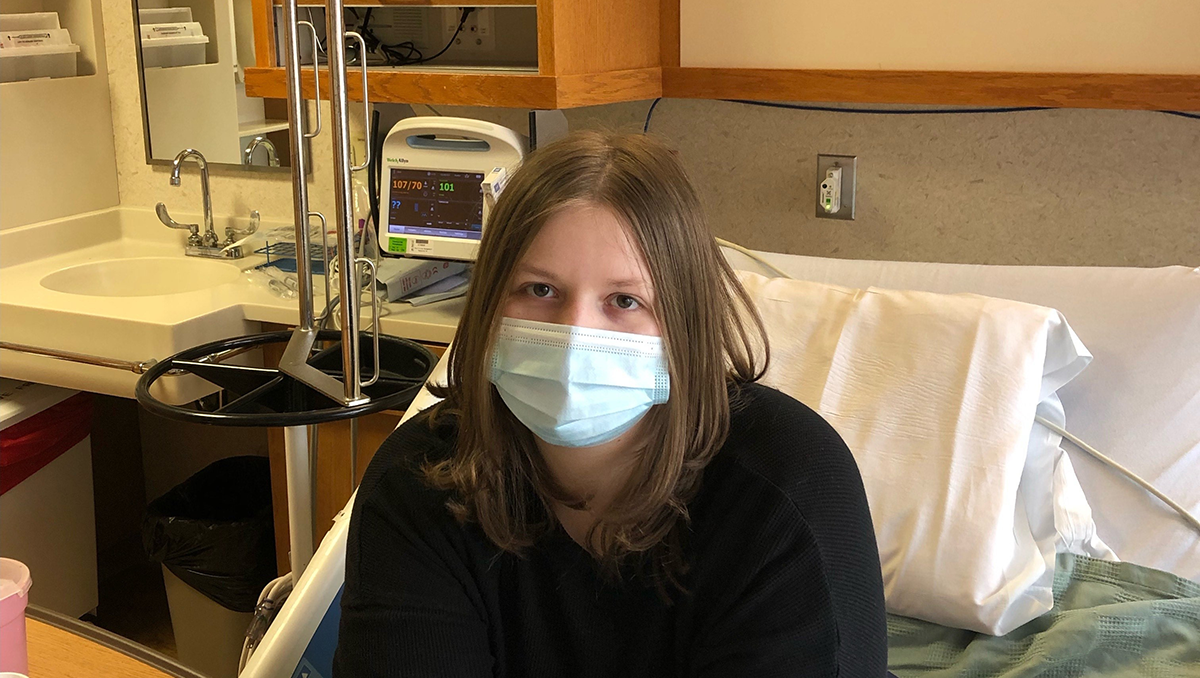
23 Sep Innovative clinical trial targets recurrent BK infection in kidney transplant recipients
UW School of Medicine and Public Health
Kidney transplant patients like Tessa Adolph, from Rockford, Illinois, face an age-old problem to protect their new kidney and bodies after transplant surgery: how to prevent infections while also safeguarding their new kidney from damage or rejection.
In Adolph’s case, the risk came from the BK virus.
At 19, she was diagnosed with Henoch-Schönlein purpura, a rare condition that causes small blood vessels in the body organs, including kidneys, to become inflamed and bleed. This transitioned into a condition called IgA nephropathy, or Berger’s disease, that over time can cause kidney scarring and eventual kidney failure, she said.
People with IgA nephropathy produce too much of an antibody that the body uses to protect itself from disease-causing pathogens. In most cases, the condition develops over decades, but Adolph’s condition was extremely aggressive and after two years her kidney function was down to about 7%. She had to undergo kidney dialysis for seven months while she waited for a kidney transplant.
“We tried many things to treat it, even chemotherapy and I lost all my hair, but in the end, I needed a transplant,” she said.
Her mom donated a kidney and through a process called paired kidney exchange, Adolph was able to get a new kidney. Then, a new problem arose, or more precisely, reawakened – the BK virus.
The BK virus causes symptoms similar to a common cold, and most people are infected with this virus at a young age. The human immune system typically fights it off, but the virus continues to linger quietly in the body. The immune system usually keeps it in check, but during transplantation, medications are used to suppress the activity of the immune system to keep the body from rejecting the transplanted kidney.
While immunosuppression is necessary to protect the new organ, it comes with a tradeoff: dormant viruses like BK can start to proliferate, according to Dr. Sandesh Parajuli, transplant physician, UW Health, and associate professor of medicine, UW School of Medicine and Public Health.
“We walk this balance between preventing infection and causing damage to the kidney or outright rejection,” he said. “But there just haven’t been many good options for treating BK reinfection.”
Traditionally, no antiviral drugs have been effective for fighting BK reinfection, and some are even harmful to new kidneys, without much benefit, so Parajuli felt there had to be a better option, he said. Read more …



